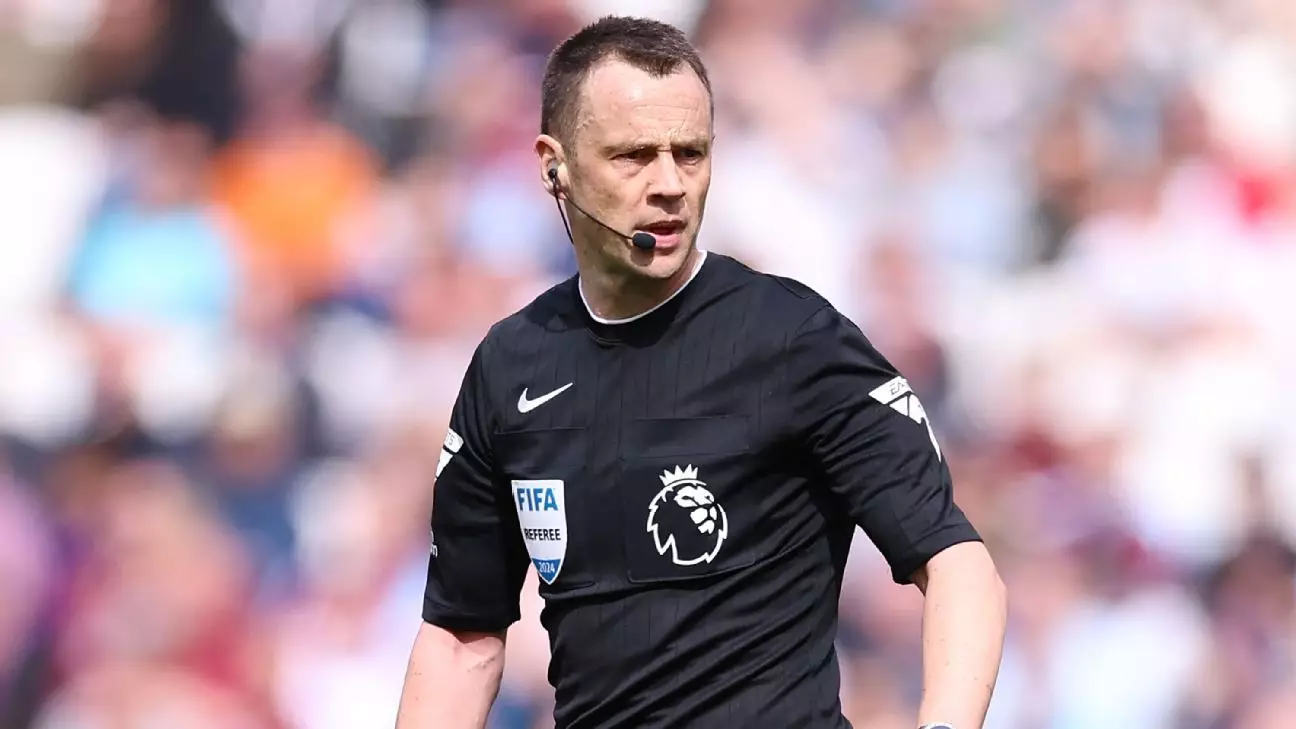The recent complaint by Nottingham Forest regarding the appointment of a VAR referee with a declared allegiance has sparked a debate about the transparency of Premier League referees. Stuart Attwell, a known supporter of Luton Town, was the video referee for Forest’s match against Everton, which resulted in a 2-0 loss. This raised concerns about a potential conflict of interest, as all three clubs involved in the match were in a relegation battle. Forest argued that Attwell’s allegiance to Luton influenced the decisions made during the game, leading to the club voicing their frustrations on social media.
In response to the controversy, Howard Webb, the chief refereeing officer of the Professional Game Match Officials Limited (PGMOL), has confirmed that the policy around declared allegiances of Premier League referees will be made public. The process behind assessing any possible conflict of interest will be set out in detail, with referees being asked to declare any specific interests in advance of the season. This information will be made public so that fans and clubs can see the protocol and declarations of interests for each official.
Transparency in referee allegiances is crucial for maintaining the integrity of the game. By making referees’ allegiances public, there is greater accountability for their decisions on the field. This transparency helps to address any potential conflicts of interest and ensures that referees are held to a high standard of impartiality. Fans and clubs have the right to know if there are any personal connections or biases that may impact the outcome of a match.
The involvement of former Premier League referee Mark Clattenburg as a consultant for Forest last season added another layer of controversy. Clattenburg resigned after being charged by the FA for comments made about the Everton game in a newspaper column. He claimed that PGMOL had ignored his concerns about the appointment of Attwell, highlighting the need for open communication and dialogue between referees and former officials.
Webb emphasized the importance of engaging with ex-referees and using their expertise to help players better understand the laws of the game. Ex-referees can provide valuable insights and explanations for contentious decisions, improving transparency and fostering a better understanding of the referee’s role on the field. By working together with former officials, current referees can continue to uphold the integrity of the game and ensure fairness for all teams involved.
The public disclosure of referee allegiances is a positive step towards increasing transparency and accountability in the Premier League. By being open about referees’ declared interests and potential conflicts of interest, the league can maintain the trust of fans, clubs, and players. It is essential for the integrity of the game that referees are held to a high standard of impartiality and that any perceived bias is addressed promptly and transparently.
